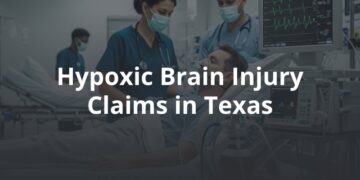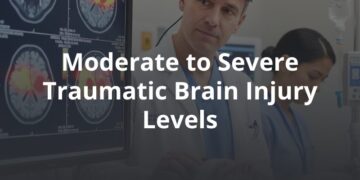Drunk driving is incredibly prevalent in the US — more than one million drivers are arrested each year for driving under the influence, while millions more report that they have driven after drinking alcohol. When drunk drivers get behind the wheel, they are much more likely to cause an accident. In fact, a blood alcohol content (BAC) level of 0.11 makes a driver over 500 percent more likely to cause an accident than if they were sober. Meanwhile, a BAC of 0.08 — the legal threshold for a DWI/DUI in all fifty states — increases the likelihood of an accident by more than 250 percent.
Drunk driving not only raises the risk of accidents; it also affects the severity of collisions when they occur. According to the CDC, drunk driving causes nearly one-third of all accident fatalities, which amounts to one drunk driving death every 50 minutes.
Because of the scope and severity of the problem of DWI/DUI in the United States, it’s vital that effective forms of intervention are identified and implemented systematically. Research suggests that the best strategy for intervention is a multi-component program of medical and psychological treatments and legal penalties and sanctions.
Below, we’ll examine some of those strategies, their effectiveness, and what can be done to minimize the damage from drunk driving accidents.
Reducing Accidents Through Careful Intervention
About one-third of all those who receive DUIs are repeat offenders. This seems to indicate that for many drunk drivers, there are deeper issues like addiction at play. For these drivers, addressing the physical and emotional factors behind this behavior, as well as enacting more comprehensive penalties, may be the key to preventing additional accidents. Some of these techniques include the following:
- Intensive supervision programs. Intensive supervision programs are an alternative to prison sentences. These programs take a more therapeutic and practical approach to drunk driving prevention. Tactics include electronic monitoring (ankle bracelets), random alcohol and drug testing, license suspension, vehicle interlocks, home confinement, and community service.
- Victim impact panels (VIPs). The purpose of victim impact panels is to present DWI/DUI offenders with the concrete consequences of their actions. Speakers typically include injured victims of DWI/DUI accidents and individuals or families who have lost loved ones. The goal of the panel is to describe in a nonjudgmental manner how DWI/DUI accidents impact people’s lives.
- Education programs. A person convicted of DWI/DUI may be required to complete an educational program about the physical and psychological effects of alcohol. These programs typically include information about what participants can do to avoid triggers and prevent dangerous behavior patterns.
- Ignition interlock. Unlike the preventative measures listed above, an ignition interlock is purely technical, which is why it is most often prescribed by a DWI/DUI court along with other strategies such as substance abuse treatment. An ignition interlock requires a driver to report a blood alcohol concentration (BAC) below a certain point (usually 0.02 percent) in order to start their car. Most often, the BAC test is administered through a breathalyzer installed in the car.
- Substance abuse treatment. When courts decide that an individual charged with a DUI or DWI has a persistent, problematic relationship with alcohol, they may rule that the driver participate in a substance abuse treatment program. The exact treatment differs case by case, but defendants are commonly ordered to attend medical detox programs, inpatient or outpatient alcohol recovery programs (often referred to as rehab), or support group meetings such as Alcoholics Anonymous.
Examining the causes behind drunk driving — and researching the effectiveness of various preventive measures — is extremely complex but necessary work. Only by analyzing different interventions will we be able to truly impact the frequency of drunk driving accidents. Our legal team applauds the work of researchers, lawmakers, and law enforcement officers who are performing these vital services.
At FVF, we offer our full support to those affected by drunk driving accidents. We provide pressure-free and sympathetic case advice for drunk driving accident victims through our free consultations. Our team will help you understand your rights and options and can even offer advice on where and how to obtain medical assistance and the best way to communicate with insurers. Contact our drunk driving accident lawyers today to schedule your no-cost case evaluation.








